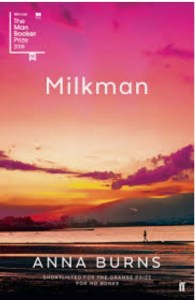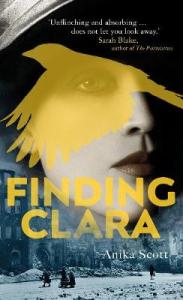
The Silence of The Girls by Pat Barker (2018)

I am an absolute sucker for anything based on Greek mythology, and The Iliad is particularly close to my heart (Book 16 was one of my A-level Greek set texts many hundreds of years ago), so I was predisposed to like this retelling of a part of the epic. Having read both Madeline Miller’s The Song of Achilles and David Mahlouf’s Ransom, however, I was hoping that this version would have its own special voice. And it certainly does. Mostly told from the first person POV of Briseis, enslaved and awarded to Achilles after the Greeks sack her home town of Lyrnessus, this book reminded me more at times of Euripides’ The Trojan Women than of Homer’s epic poem.
The details of life in the Greek camp, and Barker’s clever mixing of poetic and coarse registers rang true for me, and for the most part I fully bought into the reality of the story she creates. The way in which she tackles the existence of the gods, always a tricky issue for modern readers, worked for me, though it is possible that others might find it distancing. At times I did find the moral elements of the story slightly heavy-handed, and although Achilles was well-drawn, I was less taken with the sections presented from his point of view – I would have been happy to stick with Briseis throughout. This is a vibrant, bold retelling of a classic, however, and Briseis as a character more than earns her turn in the spotlight that Barker shines upon her.
Milkman by Anna Burns (2018)

It would be an interesting experiment to read this novel with absolutely no background information and see how far the reader gets before they realise that this is not a completely invented dystopia, but a specific place, Northern Ireland in the 1970’s, during the Troubles. The vague naming of both people and places, almost allegorical in tone (‘the Milkman’, ‘third brother-in-law’, ‘the land over the water’) adds a kind of universality to the story which makes it all the more chilling, and calls to mind all kinds of global totalitarian regimes both historical and fictional.
The biggest strength of this powerful novel is the voice of the (also unnamed) narrator. The 18 year-old protagonist is an amazingly unique creation, and her voice is original, funny and at times utterly surreal. The Milkman himself is all the more sinister for hovering behind the scenes, on the periphery of the novel, like a shadow in one of the creepy no-mans-land areas described in the book. There are some fantastic secondary characters, particularly Maybe-Boyfriend and third brother-in-law, as well as the eccentric cast of ‘beyond-the-pales’ who are judged by the all-seeing eye of the community. This is a tense, absorbing, incredibly intelligent book. And I will never look at a sunset the same way.
Spark by Naoki Matayoshi (translated by Alison Watts, 2019)

I have reviewed this in full here, but I really enjoyed this short, fresh story that takes the reader on a journey through the strange world of Japanese manzai comedy. The ending is one of the most shockingly unexpected finales I have seen in fiction!
The Animals At Lockwood Manor by Jane Healey (2020)

This also merited a longer review, which you can read here. This is one of my top reads of 2020 so far. Highly recommended – a gorgeous book.
Middle England by Jonathan Coe (2018)

I have to say, I never thought I would be looking back nostalgically on the time when all we had to worry about was Brexit. This novel, which rejoins characters from The Rotters Club and The Closed Circle, covers the years 2010 to 2018, and who would have thought that those were the good old days? It was actually a real relief to spend some time in Coe’s world, to enjoy the cheeky British humour and sense of fun that pervades this novel. Although politics forms the backdrop, it is the personal journeys of the characters that are most important. Benjamin Trotter has become unexpectedly successful as a novelist; Doug is a centre-left newspaper columnist torn between his political sensibilities and his inevitable rise to the middle classes; Sophie is a university lecturer who falls for a driving instructor at a speed awareness course.
For me, it was the relationship between Sophie and Ian, with all its divisive complexities, that formed the heart of this novel, and which was a reminder of the day our country split in two. Their differences are handled well, and I think Coe subtly weaves in some lessons for us all. This book is gentler and milder than a lot of the fiction I have read this year, but it was a soothing and comforting read at a time when such relief is most welcome.
Where the Crawdads Sing by Delia Owens (2018)

It is going to be very hard for me to talk about this novel without getting emotional, because Delia Owens has now written not one but two books that will always hold a place in my heart. Growing up, and spending a very fortunate three years in Africa as a child, I was obsessed with the book that Owens wrote with her then-husband, Cry of The Kalahari, documenting their studies of lions and brown hyena. I had all but forgotten just how important that book was to me when I started seeing Crawdads everywhere, and I was both excited and anxious to see whether her fictional debut would hold the same magic for me.
Luckily, it most certainly did. There is so much that I love about this novel. Owens skilfully jumps between the dual timelines of 1952 and 1970, and sets up enough intrigue at the start of the book that there is no question of doing anything other than reading on. Kya Clark, the ‘Marsh Girl’ whom we follow as she grows up, mostly alone, in a shack in the swamp lands of North Carolina, is a hugely successful creation. Original, sympathetic, fierce – she is someone to root for whole-heartedly. The other huge success of this novel is, of course, the natural description. The marsh is a character in its own right, and Owens’ use of the cycles and rhythms of the landscape and its wildlife is a wonder to read. The lushness of the prose had me so hooked that I honestly don’t think I even needed the trial towards the end of the book to maintain my interest, even though it was very well-written – I was more than happy watching Kya in her element in the marsh. I think there probably are small technical flaws in this novel that I could pick apart, but I don’t want to, because sometimes it is enough to love a book whole-heartedly, give thanks to the author, and leave it at that.
Kilo: Life and Death Inside The Secret World of the Cocaine Cartels by Toby Muse (2020)

And now for something completely different. I was so thrilled to be on the Damp Pebbles Blog Tour this month for this outstanding work of investigative journalism. I read far more fiction than non-fiction, but when non-fiction is this good, I start to question that decision. You can read my full review here.
Finding Clara by Anika Scott (2020)

My last read of the month was a surprising and page-turning historical novel that upends some of the usual tropes of the genre. Set in Germany in 1946, it deals with the aftermath of World War Two in an intelligent and complex way, focusing on a protagonist who is by no means innocent herself. If you want to find out more about this intriguing debut novel, see my full review here.
I have read some great books this month, an eclectic selection, which is just how I like it. Please do drop me a comment if you have read any of these, or if you plan to, or if you have any recommendations for me! I’ve got lots of good stuff lined up for April, but am always happy to grow my TBR list!
I loved reading this wrap up Ellie. I totally agree with Where the Crawdads sing, I read it last year and loved it. I haven’t read any of the other books on your list yet but they look fab! Xx
LikeLike